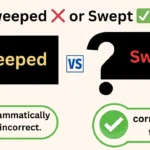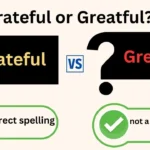When navigating the intricacies of the English language, certain terms can cause confusion, especially when they seem interchangeable.
One such pair is “requestor vs requester” While they both refer to someone who makes a request, their usage and preference can vary depending on the context.
Definition and Usage Of Requestor Or Requester
Requester
The term “requester” refers to an individual who makes a request. It’s commonly used in a variety of contexts, from everyday conversations to professional and legal settings.
- Everyday Usage: In daily life, “requester” is the preferred term. For example, if you ask someone to pass the salt, you might say, “The requester asked for the salt.”
- Business Communication: In professional environments, especially in customer service or administrative roles, the term is frequently used. An example could be, “The requester submitted a form for a refund.”
- Legal Documents: In legal contexts, “requester” is often used to describe someone who formally requests information or action. For instance, “The requester filed a petition for a court hearing.”

Requestor
On the other hand, “requestor” is an alternative term that essentially means the same thing. However, it is less commonly used in everyday language.
- Specialized Fields: “Requestor” is more frequently found in specialized fields, such as technical writing, legal documents, and formal records. For example, “The requestor is entitled to a hearing within 30 days.”
- Formal Documentation: In formal or legal documentation, “requestor” may be preferred for its traditional and formal tone.
Prevalence and Preference in American English
In American English, the choice between “requester” and “requestor” often comes down to common usage and personal or institutional preference.
Requester
“Requester” is the more widely accepted term in American English. It is used in various contexts, reflecting its broader acceptance in both spoken and written language.
- Examples in Contemporary Writing: The term “requester” appears frequently in contemporary texts, including emails, articles, and reports. For instance, “The requester’s information has been updated in our system.”
- Media and Publications: “Requester” is also prevalent in media and publications. News articles and business reports often use this term to maintain clarity and consistency.
Requestor
“Requestor” is less common in American English but is still used in certain contexts.
- Technical Manuals: You might find “requestor” in technical manuals and detailed specifications where formal language is often preferred.
- Formal Documents: In legal and formal documents, “requestor” may be used to maintain a traditional tone.
Influence of Language Trends
Language trends can significantly impact word preference and usage. The rise of digital communication and informal language styles has contributed to the increased use of “requester.”
Modern Language Trends
- Digital Communication: The informal nature of digital communication platforms has popularized “requester” due to its straightforward and less formal tone.
- Language Simplification: The trend toward simplifying language for clarity and accessibility has made “requester” more favorable.
Usage in British English and Specialized Contexts
In British English, “requestor” is more commonly used than in American English, though “requester” is also recognized.
Requestor in British English
“Requestor” is more prevalent in British English, particularly in formal and legal contexts.
- Examples: Legal documents, official forms, and formal correspondence often use “requestor.”
Specialized Contexts
- Technical Fields: In technical writing and documentation, “requestor” may be preferred for its formality.
- Legal Terminology: In legal contexts, “requestor” is often used to maintain consistency with traditional legal language.
Etymology and Evolution
Understanding the evolution of the terms “requester” and “requestor” provides insight into their usage and preference.
Historical Perspective
- Origins of “Request”: The word “request” has its roots in Latin, deriving from the word “requestus,” which means “to ask.”
- Evolution of “Requester”: The term “requester” emerged as a natural derivative of “request,” aligning with the English language’s tendency to create agent nouns by adding “-er.”
Emergence of “Requester”
- Modern Usage: “Requester” gained prominence in modern English due to its simplicity and ease of use, fitting well with contemporary language trends.
Practical Examples
Using “Requester” in Sentences
- Email Communication: “The requester has submitted a formal request for a status update.”
- Business Correspondence: “Our team will process the request from the requester within 48 hours.”
Using “Requestor” in Sentences
- Legal Document: “The requestor must provide additional documentation to support their claim.”
- Technical Manual: “The requestor will be notified once the system update is complete.”
Understanding Language Variations
Language variations can affect the choice between “requester” and “requestor.” Considering the context and audience is crucial for selecting the appropriate term.
Regional Variations
- American English: “Requester” is generally preferred.
- British English: “Requestor” is more commonly used, though “requester” is understood.
Professional Contexts
- Formal Documents: “Requestor” may be favored for its formal tone.
- Everyday Use: “Requester” is more common in casual and everyday language.
Conclusion
Understanding the difference between “requester” and “requestor” involves recognizing their definitions, usage, and contextual preferences.
While “requester” is more prevalent in American English and casual contexts, “requestor” remains significant in specialized fields and British English.
By considering the context and audience, you can choose the term that best suits your needs.

As an experienced English teacher, I’m Jessica Thompson, here to make grammar and vocabulary simple and fun. Join me on TalkSpeaker as we explore the language together, one lesson at a time!



